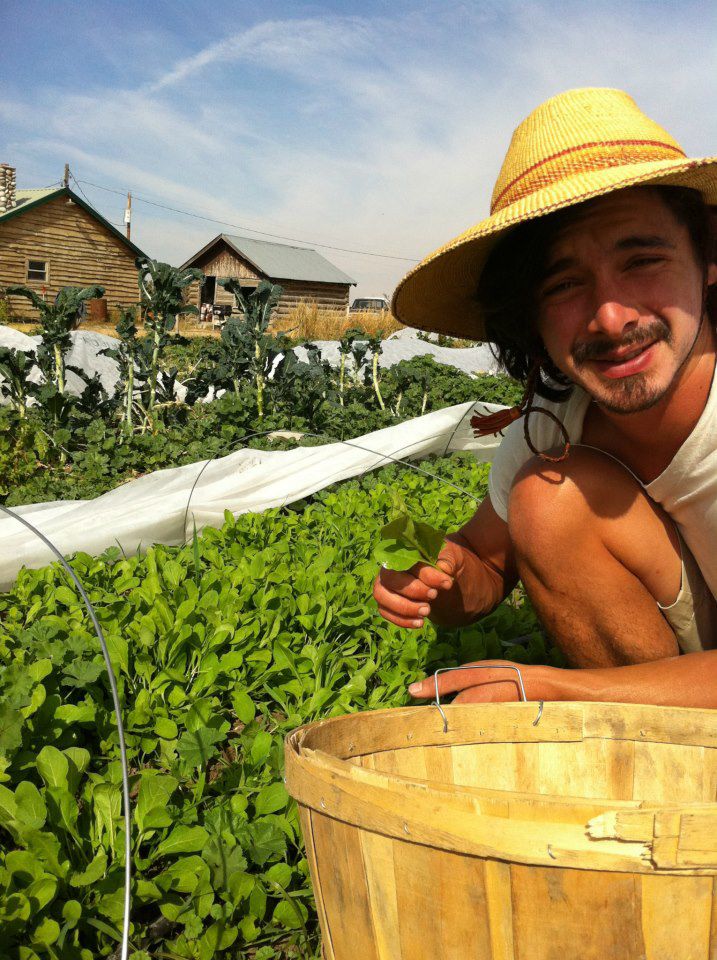One definition of the term “voice” is “the right to express an opinion.”
To voice one’s opinion is a right in common. I write to encourage my fellow citizens – particularly the young – to share in this expression. We all have a voice – and while many of us are people of action first, our community requires our voices to weave the narrative that bolsters our good work. It has been a complaint that the young remain disconnected from the future of this community, politically and otherwise. This is not so. Our work IS the future of this community. At present, it is a matter of integrating our work and our voices.
I support our city council and I am – in large part – pleased with its work to date in 2017. Nevertheless, while a few strong voices arose during last week’s city council session, it was SITLA’s bullying tactics that compelled the council’s directive. Several weeks of back and forth continued to yield new realizations and new questions. As the issue grew in complexity, it was as though time had run out. The motion to approve the Lionsback Resort in its new incarnation passed 3-2.
Had the motion been denied, voice would have been given to the actual values of many on the council and certainly to the majority of those in attendance. From there, the council could have pursued strategic efforts to shape developmental impacts. Disassociated from the immediate process, they would still inform decisions regarding sewer hookups and water rights. How would SITLA respond to this particular form of resistance? Would they build wells and seek to obtain water rights? Would they construct an independent sewage treatment plant (immediately adjacent to a water source protection area), incurring further potential loss of profitability? Or would they scan down the list and wage a lesser battle elsewhere, in a community with a quieter voice?
I do not mean to minimize the complexity of the issue. Even now, there is much we (citizens and council alike) do not understand. This is exactly the point. And this is how projects like the Lionsback Resort find their footing. It is all of us as citizens – not merely the council we have elected – who must take responsibility. Though the council’s capitulation revealed a lack of creativity and a poise of defeatism, taking the bureaucratic approach to cater to SITLA’s demands, the intentions were good. The burden of the long-term implications of this decision weighed heavily, palpably in the room.
Unfortunately, the sidetrack of concern over future lawsuits, along with SITLA’s threats to work outside of local processes, overshadowed the reality of what it means to speak honestly and to act accordingly. For all of our previous momentum, we now set precedent for development that will – no matter how the dotted lines shape the landscape on paper – further endanger our most precious natural resources in the valley. The Lionsback Resort will in no way improve either the landscape or the quality of living – or the quality of water – within our community.
This onus is on all of us. In an era ridden with rhetoric, falsehood and bullying, we the people must be the eyes and the conscience of the community. Where we see foul play, where we disagree morally or ethically, we must speak up. At a time when the Clean Water Act is threatened with repeal, we in our Moab anxiety race to compensate for yesterday’s lack of planning, missing opportunities along the way. We choose the most expedient sewer treatment infrastructure, passing up opportunities to integrate waste management with wetlands restoration. Is this what we want? Are these our truest values?
It is past time to treat this land and our community as though it – and we – will be here 50 years from now. Because some of us will. And when the goal of a community is resilience, our vision must hold a mirror to the soul of the present – and the past.
This is not meant to be an anti-development diatribe. Development is inevitable. What is not inevitable is public engagement and the voice of the people. To paraphrase Councilman Bailey: These are our problems now, to manage these missteps. But it is an opportunity, too. To reflect.
There is an irony in this decision coming on the heels of the proud declaration of our city’s clean energy goals. Choose opportunity over irony. Look forward: The Water Conservation Advisory Board. The City Sustainability Director. Open and respectful conversation. How the integration of these pieces will contribute to the whole of a vision for this community moving forward.
Support your elected officials. And be sure to speak your voice when you agree and when you disagree. This does not end here.
Jeremy Lynch is a small business owner and Grand County resident, dividing his time between teaching and project development with a focus on the intersects between watershed resilience and community health.



